Meet the Festival Filmmakers: Part 2

There’s a reason filmmaking is so often referred to as a journey. Getting from point A (idea in your head) to point B (feature film on the big screen for all the world to see) is a long (sometimes strange) trip indeed. We’ve asked our Festival filmmakers to share their journeys’ highlights and potholes—and reveal what’s kept them moving forward along the way. Here, we meet five of the directors in this year’s narrative competition (To meet the filmmakers in our LA Muse section, go to Part 1.)
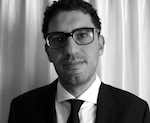 “My best plan B was to be broke, work a shitty job and keep trying until I die.”
“My best plan B was to be broke, work a shitty job and keep trying until I die.”
First-time writer-director Sam Esmail will be premiering his film Comet, which chronicles a volatile, passionate six-year relationship and stars Emmy Rossum and Justin Long as the complicated couple. Esmail notes that a film about a breakup is “something I think is much more universal than happily ever after.” He says his challenge for this film was “to make a movie about heartbreak that wasn’t completely depressing and still entertaining—I figured, there are lots of great songs on the subject, why not a movie?”
What’s your first memory of sitting in a movie theater?
First movie I saw in the theater was E.T. I’m not sure if it was because my friends had talked it up so much or if it was because I was five and really stupid, but I was completely bored by the movie and thought to myself “I can do better than that.”
What do you love most about being a filmmaker?
Making a movie.
What do you like least about it?
The industry.
How long have you been working on the film, from idea to execution?
I wrote the first draft in 2006 then never looked at it again until 2010 when I was going through a break up (a fruitful time to work on a script, I’ve always felt). Three years later, we shot the film in 18 days.
What’s the biggest obstacle you encountered in the making of this film and how did you overcome it?
The biggest obstacle is money; it’s always money. I overcame it by being lucky—a skill I’m not very good at.
What’s the biggest difference between the reality of being a filmmaker and your dream of it?
The dream of being a filmmaker is making your movie as close to how you’ve pictured it in your head. The reality is your head is sometimes wrong or unrealistic, and you have to be modest enough to recognize that and open enough to adapt.
Have you ever considered throwing in the towel on filmmaking and if yes, what stopped you?
I’ve never considered completely throwing in the towel. My best plan B was to be broke, work a shitty job and keep trying until I die.
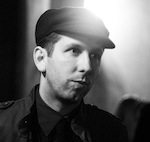 “I’ve come to learn that it never gets easier.”
“I’ve come to learn that it never gets easier.”
Valencia native Mike Ott (age provided: “old as dirt”) will be at the Festival with his fourth feature, Lake Los Angeles, which follows a young girl who has just crossed the border into the US all alone and forges an unlikely bond with another lonely immigrant. The final installment in Ott’s Antelope Valley trilogy, the film was inspired by the landscape of Lake Los Angeles (where it was almost entirely shot) and the director’s favorite films with brilliant child performances, like François Truffaut’s The 400 Blows.
What’s your first memory of sitting in a movie theater?
For some reason Daniel Larusso from The Karate Kid seems to be the first memory I have.
What do you love most about being a filmmaker?
Collaboration.
What do you like least about it?
When you premiere a film and the first thing someone asks is, “so what are you doing next?”
Will this be your first experience with the LA Film Festival? If not, what was your first experience—and what was memorable about it?
I’m a Film Independent Fellow… my first experience was with my thesis film, which was called Analog Days. I think what was memorable about it was having Rachel Rosen get me drunk every night on Jameson.
What’s the biggest difference between the reality of being a filmmaker and your dream of it?
I’ve always known that filmmaking was hard… but maybe I’ve come to learn that it never gets easier.
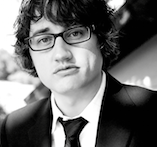 “I remember endlessly repeating ‘Touch the spindle, touch it I say!’”
“I remember endlessly repeating ‘Touch the spindle, touch it I say!’”
Filmmaker Dave Boyle will be competing with his fifth feature, Man From Reno, a neo-noir thriller about a Japanese crime novelist living in San Francisco who finds herself in the midst of a real-life murder mystery. Boyle, a self-proclaimed “huge mystery buff,” said he wanted to “put a new twist on old crime fiction tropes fused with a more personal, character-driven story.” In other words, “What if Alan J. Pakula directed a Nancy Drew movie?”
What’s your first memory of sitting in a movie theater?
My first memory is seeing Sleeping Beauty when it was released in the 1980s. I don’t remember the movie well, but I remember endlessly repeating “Touch the spindle, touch it I say!” and making spindles out of toilet paper rolls and pencils.
What do you love most about being a filmmaker?
I love telling stories and creating alternate realities on screen.
What do you like least about it?
I dislike the constant dependence on uncontrollable factors.
Have you ever considered throwing in the towel on filmmaking and if yes, what stopped you?
There have been setbacks, discouraging moments and disappointing business results that threatened to take choice out of the equation. But it’s never been so bad that I wanted to quit.
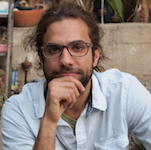 “A lot of obstacles are overcome by blithe persistence.”
“A lot of obstacles are overcome by blithe persistence.”
Writer-director Kerem Sanga will be at the Festival with his second feature The Young Kieslowski, about a sexually inexperienced college freshman who goes home with a girl for the first time and gets her pregnant with twins after their drunken night together. The film was shot primarily on the CalTech campus, and Sanga took inspiration from his own life; he and his twin brother were born while their parents were still in college.
What’s your first memory of sitting in a movie theater?
My first movie-theater memory is going to Driving Miss Daisy with my twin bother. My dad was on a date and he took the two of us along. We were five years old and found the film incredibly boring, so we were coming up with ways to leave the theater. Mostly we kept asking to be taken to the bathroom. Between my dad and his date they must have missed half the movie. I think we really ruined it for them, in hindsight I regret doing that.
What do you love most about being a filmmaker?
I feel like making films is more of a compulsion than a thing I do out of love. So in that sense the thing I love the most is the relief I feel when it’s finished. I suppose I also like production a lot too, because the task is so well defined. Writing is so nebulous, and getting a movie together means submitting yourself to all these forces outside of your control. But when you’re actually making the film you don’t have the time to reflect or worry. Every day there’s some disaster, but that’s part of the thrill.
What do you like least about it?
Certainly the conflicts and the failures that go along with filmmaking bother me, but not to such an extent that I would say I dislike them. If it was all just handed to me I think that might be a little boring. Although maybe not, maybe I’d prefer that. Actually I think truthfully of course I’d prefer being given everything I wanted. So I guess the worst part is not being given as much money and resources as I want.
What’s the biggest obstacle you encountered in the making of this film and how did you overcome it?
I find a lot of obstacles are overcome by blithe persistence. We were trying to convince administrators at Caltech to let us shoot on campus. They’d initially said no, but we thought maybe if we just go over there and ask really nicely and give them the whole indie-film song-and-dance they might be sympathetic. That didn’t work. Still, I kept going back to Caltech. It had to be there! One day I was sitting outside an administration building, waiting for a certain decision-maker to step outside so I could ‘casually’ run into him. Either he slept in his office that night or eluded me in some other way, because I sat there the whole day and I never saw him. On the way home I got into a car accident. No one was hurt, but there was probably thousands of dollars worth of damage to the other car. At that point I thought, okay, this is a low point, but maybe if I just don’t think about it too hard everything will magically work out. I called Caltech a couple days later and they finally gave us permission to do pretty much whatever we wanted. Incidentally, GEICO ruled that the accident wasn’t my fault, so that worked out too.
What’s the biggest difference between the reality of being a filmmaker and your dream of it?
All the dreams I have as a filmmaker are generally related to the stories themselves. I have dreams about how a certain film I’ve written would look, how it might sound or how an actor might say a certain line. But as far as seeing my name in lights and all that, I don’t really have those dreams. Sometimes I wish I had more of those dreams, so that I might be more motivated to be a success and all that. But not having them is also helpful, in that failure and disappointment don’t bother me very much. I would certainly like to enjoy some success, because having money is nice. Woody Allen once said something to the effect of he doesn’t care what people do with his films after he’s dead, you could throw them all in the garbage. I don’t know if I’d go that far, but I sympathize with the sentiment. He also said that he made more money off the sale of his apartment than all of his previous films combined, so I’m looking at getting into real estate.
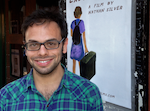 “I want to make as many movies as there are lunatics in the world.”
“I want to make as many movies as there are lunatics in the world.”
Massachusetts native Nathan Silver will be premiering his fourth feature Uncertain Terms, which follows a young man who goes to stay with his aunt, who runs a home for pregnant teenagers. He forms a friendship with one of the girls there, resulting in conflict with her baby’s father and the other girls in the house. Silver was inspired by his own mother, who became pregnant as a teenager and was sent to live at a home for unwed mothers, and he cast her as the protagonist’s aunt who runs the house.
What’s your first memory of sitting in a movie theater?
My parents took me to see the remake of Breathless when I was six months old. I think I cried because it was too loud.
What do you love most about being a filmmaker?
Chaos.
What do you like least about it?
Regimentation.
What’s the biggest obstacle you encountered in the making of this film and how did you overcome it?
Interpersonal conflict. There’s no way to overcome this; you live with it and film it.
What’s the biggest difference between the reality of being a filmmaker and your dream of it?
I dreamed of becoming a 19th century French poet but couldn’t make that happen so I ended up making movies.
Have you ever considered throwing in the towel on filmmaking and if yes, what stopped you?
No, I want to make as many movies as there are lunatics in the world.
Mary Sollosi / Festival Blogger